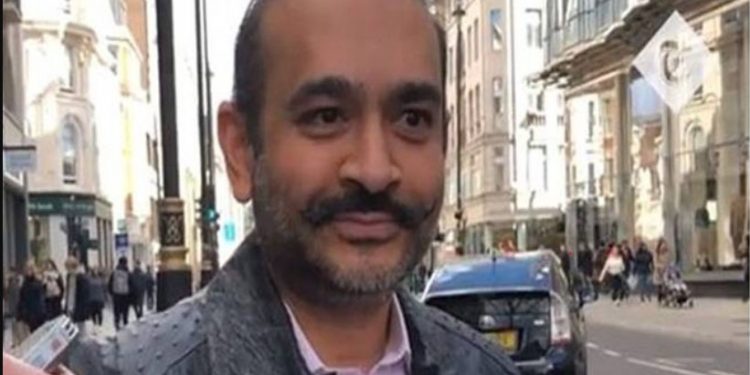London: The UK High Court heard Tuesday fugitive diamond merchant Nirav Modi’s appeal against a lower court’s order to deny him bail as he fights his extradition from Britain to India in the nearly USD 2 billion Punjab National Bank (PNB) fraud and money laundering case.
Justice Ingrid Simler at the Royal Courts of Justice in London concluded the hearing and said as the matter is of ‘some importance’, she would take some time to consider it and hand down her ruling on Wednesday.
Nirav’s legal team repeated many of its assertions from previous three bail pleas before Westminster Magistrates’ Court to claim that the 48-year-old diamond merchant did not pose a ‘substantial’ flight risk, as claimed by the Indian government.
“Nirav is not (Wikileaks co-founder) Julian Assange who sought refuge in the Ecuadorean Embassy, but just an ordinary Indian jeweller. There is no evidence to show that he would do the prohibitive things listed (such as interfere with witnesses),” said Clare Montgomery, Nirav’s barrister, as she once again offered to abide by ‘ostensibly harsh’ conditions to be able to stay within a curfew at his lavish Centrepoint apartment in central London.
A reference was also made in court about Nirav’s troubled state of mind while lodged at Wandsworth prison in London, as laid out in ‘confidential’ documents which were not disclosed due to a court order.
“The circumstances he has had to endure at Wandsworth have been personally difficult and the confidential exhibits reflect the experience that has marked him deeply,” said Montgomery.
“The reality is that he is not the cold-blooded hardened criminal as claimed by the government of India but a jewellery designer from a long line of diamond dealers, and regarded as being honest, careful and reliable,” Montogomery said, adding that a number of individuals were willing to offer sureties and substantial sums to back up the claim that Nirav is not a man who plans to run.
The jewellery designer’s assistant, Frances Hallworth, was among those mentioned as being present in court as part of repeated assertions that Nirav sees the UK as a ‘safe haven’ and that there is no place in the world for an Indian national without a passport to run away to. “There simply isn’t anywhere in the world that is an extradition free zone,” asserted Montgomery.
Judge Simler intervened to indicate that she has noted that Modi does possess the ‘means’ to flee the UK and that factor must be a feature in a case involving ‘such sizeable funds’ but conceded that she needed to be convinced of ‘strong’ grounds that he would fail to surrender.
“The way he may see it, he has a highly desirable legal team in place which is preparing a case against the government of India… and perhaps thinks he has good chance of escaping extradition,” Judge Simler noted, indicating that bail could be withdrawn at a later stage in the proceedings even if granted at this stage.
However, the UK Crown Prosecution Service (CPS), arguing on behalf of the Indian government, reiterated the stand that it was at this stage that Nirav posed a significant flight risk and had significant funds at his disposal to be able to flee to a country with which India did not have an extradition treaty.
“The government of India has strong, friendly bilateral relations with the UK, including an extradition treaty, and this case involves widespread allegations… which have been submitted in good faith by Indian authorities,” said CPS barrister Nicholas Hearn, who argued that the threat of Nirav interfering with witnesses and destruction of evidence continued to loom as part of the ongoing investigations.
Hearn also pointed to the continuously increasing amounts of the bail bond offer made by Nirav, starting at 500,000 pounds and ending up at two million pounds, implying there are funds hidden away that he could use to plot an escape.
He also reiterated that while Nirav’s legal team has attempted to characterise the case as a commercial matter, the Indian investigations carried out at high levels by two agencies – the CBI and the Enforcement Directorate – prove that it is a serious criminal case.
The judge concluded that such a case usually ‘has a presumption of bail in the absence of strong evidence’ and that she would be proceeding on the basis that the Indian judicial and investigating authorities are acting in good faith.
PTI







































